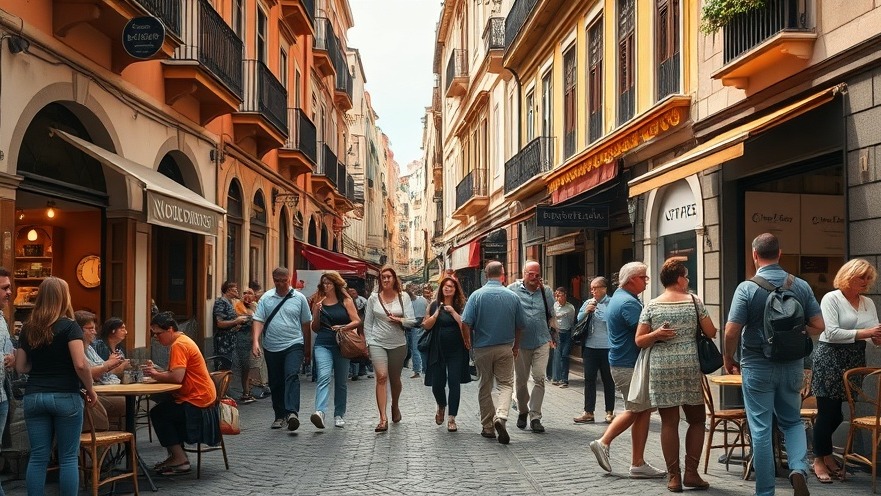
Understanding the Frustration: Cultural Sensitivity in Spain
Traveling to a new country can be an exhilarating experience, but there are unwritten rules that visitors must observe to avoid upsetting local communities. In Spain, a beautiful country known for its rich culture, locals are becoming increasingly frustrated with tourists who overlook cultural norms and etiquette.
Importance of Respecting Local Customs
Respecting local customs not only enhances your travel experience but also fosters goodwill between visitors and residents. In Spain, customary practices like traditional meal times and language immersion hold significant importance. For instance, dinner is often served late, around 9 PM or even 10 PM, which can catch travelers off guard. Understanding and adapting to these family-oriented customs shows respect for local culture.
Common Cultural Missteps to Avoid
Many travelers unknowingly commit faux pas that can annoy locals. Here are a few examples:
Dining Etiquette: Expecting to eat dinner as early as 6 PM is a common mistake. Locals enjoy late meals, and pushing for an early dinner can come off as disrespectful.
Language Barriers: Engaging with locals in English without attempting basic Spanish phrases can be perceived as impolite. Simple phrases like "hola" (hello) or "gracias" (thank you) can go a long way.
Dress Code: Wearing beach attire away from coastal areas, especially in cities, can attract disapproval. Proper attire for the setting is part of respecting the local vibe.
Why Sustainable Practices Matter
In tandem with cultural sensitivity, sustainably-minded tourism is a pressing issue. Travelers are encouraged to implement eco-friendly practices, contributing to the country’s conservation efforts. Sustainable development enriches not only the traveler’s experience but also benefits local communities. For instance, opting for sustainable food service establishments can help support local economies while also preserving environmental resources.
Exploring Eco-Friendly Dining Options
As eco-tourism grows, travelers should prioritize restaurants that adhere to sustainable food practices, such as compostable packaging and sourcing local ingredients. This not only minimizes the carbon footprint but also highlights the rich culinary traditions of Spain.
How to Foster Positive Interactions with Locals
Incorporating conscious habits into your travels can be rewarding. Here’s how you can engage positively with locals:
Participate in Local Initiatives: Join tree planting initiatives or community clean-up drives to demonstrate commitment to local growth and sustainability.
Frequent Local Artisan Shops: Choose to buy from local craftsmen instead of chain stores, promoting economic sustainability while enjoying unique finds.
The Ripple Effect of Cultural Understanding
Cultural understanding and eco-conscious practices work hand-in-hand in creating a seamless travel experience. By respecting local customs and making environmentally sound choices, travelers become ambassadors of goodwill. With collective efforts centered around sustainability and cultural appreciation, we can help preserve the integrity of Spain’s culture for future generations.
Join the Movement Towards Responsible Travel
As travelers, we have the unique power to influence our surroundings positively. Let’s commit to respecting local customs and adopting sustainable practices to ensure that our journeys are rewarding not just for ourselves but for locals like those in Spain who warmly welcome us into their beautiful country.
 Add Row
Add Row  Add
Add 




Write A Comment